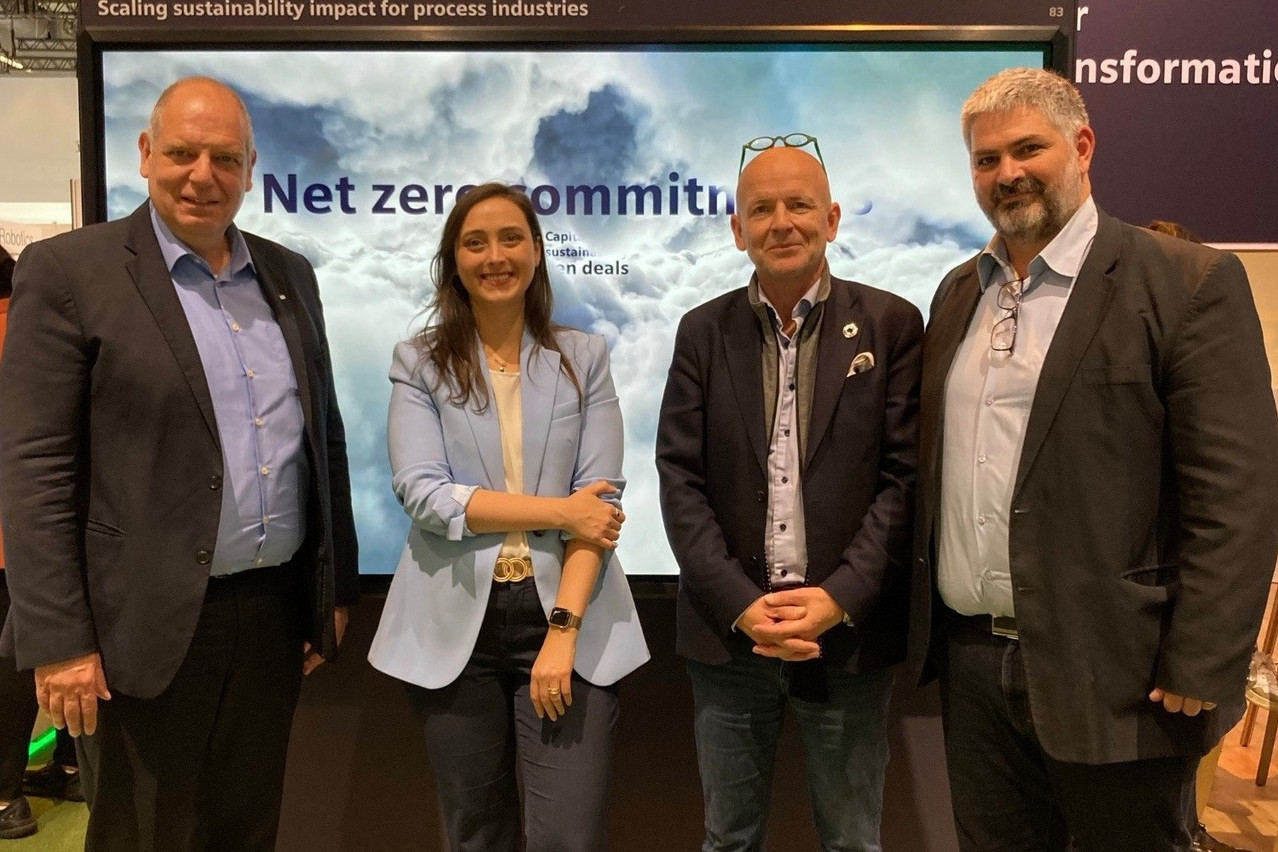It’s not often that an industrial giant opens its portfolio to a Luxembourg startup. This is what Siemens has decided to do with Boson Energy by agreeing to provide it with consulting and technology services, in particular applications from its Siemens Xcelerator portfolio, covering automation, digitalisation, electrification and instrumentation.
This should enable , which was founded in 2008 and is housed at the House of Startups, to create more than 300 plants producing 1m tonnes of hydrogen by 2030, avoiding up to 30m tonnes of CO2 emissions a year. Starting with Sweden, Poland and Germany, and then continuing across Europe, Boson Energy is aiming for a global presence.
“We are excited to join forces with Siemens in our ambition to make a difference in society and support global decarbonisation with our Waste-to-X solution,” said Boson Energy CEO Jan Grimbrandt in a issued 3 July. “Siemens, with its unique capabilities of people and technology, gives Boson Energy ‘unlimited’ capacity to scale and reach markets from Berlin to Delhi and beyond--from day one.”
“We look forward to supporting Boson Energy with our portfolio to contribute to a more sustainable circular economy,” said Axel Lorenz, CEO of process automation at Siemens Digital Industries. “Digitalisation and automation are crucial for building and scaling production capacities--even more so for complex processes such as thermochemical recycling.”
Boson Energy already has decentralised local energy and chemical production, converting non-recyclable waste into sustainable hydrogen that is cost-competitive with fossil fuels at the point of use, it said in the two companies’ joint statement, released mid-day. “It does this by integrating its hydrogen by plasma assisted gasification (HPAG) technology into an ‘energy hub’ solution that realises the important circular hydrogen potential of waste in a uniquely sustainable way. The hydrogen produced can support off-grid applications such as fast charging and facilitates more reliable grid operations.”
Read also
“The collaboration with Boson Energy represents a significant step forward in our commitment to advancing technologies toward CO2 reduction,” commented Stephan May, CEO of electrification and automation at Siemens Smart Infrastructure. “By leveraging the breadth of our comprehensive portfolio, we aim to create a scalable and efficient model for converting waste into clean hydrogen. This collaboration not only addresses the urgent need for local energy security but also contributes to reducing the global carbon footprint, paving the way for a more sustainable future.”
Founded in 2008 in Luxembourg, Boson Energy already has subsidiaries in Poland, Germany, Israel and the UK. At the end of 2023, it was . The startup had already made it into Red Herring’s Top 100 in 2019, and had also made a name for itself at Vivatech and in January 2023, in the final of the Israel Energy Top Stars.
This article was first published in French on . It has been translated and edited for Delano.
